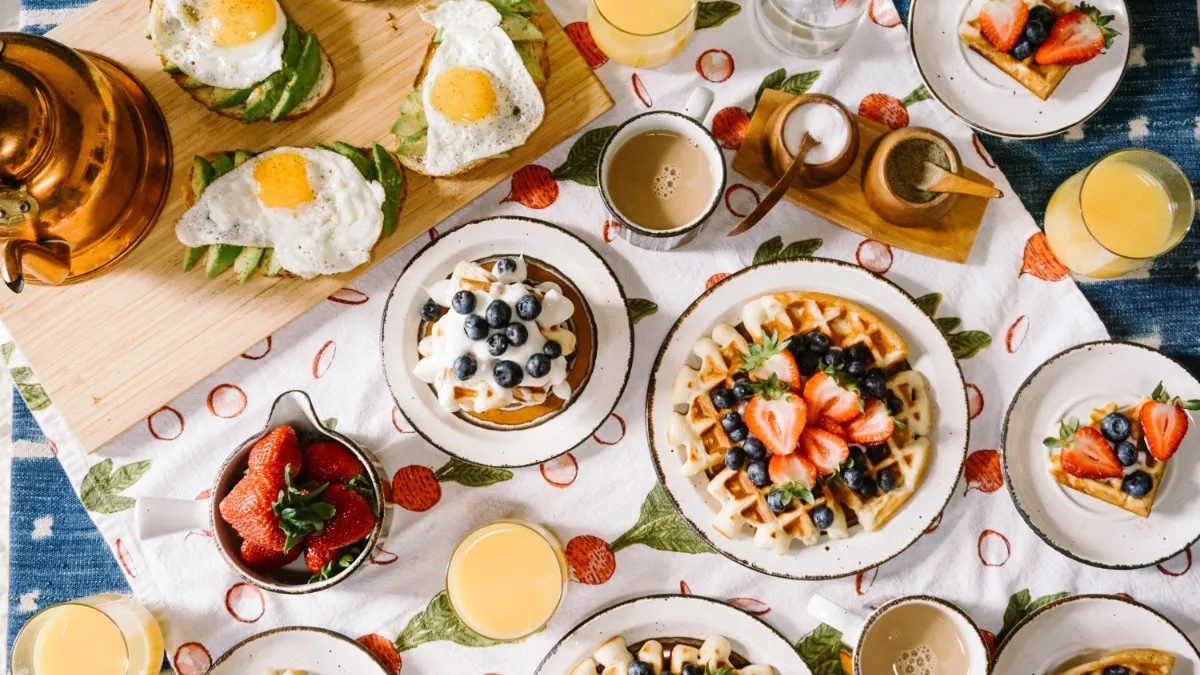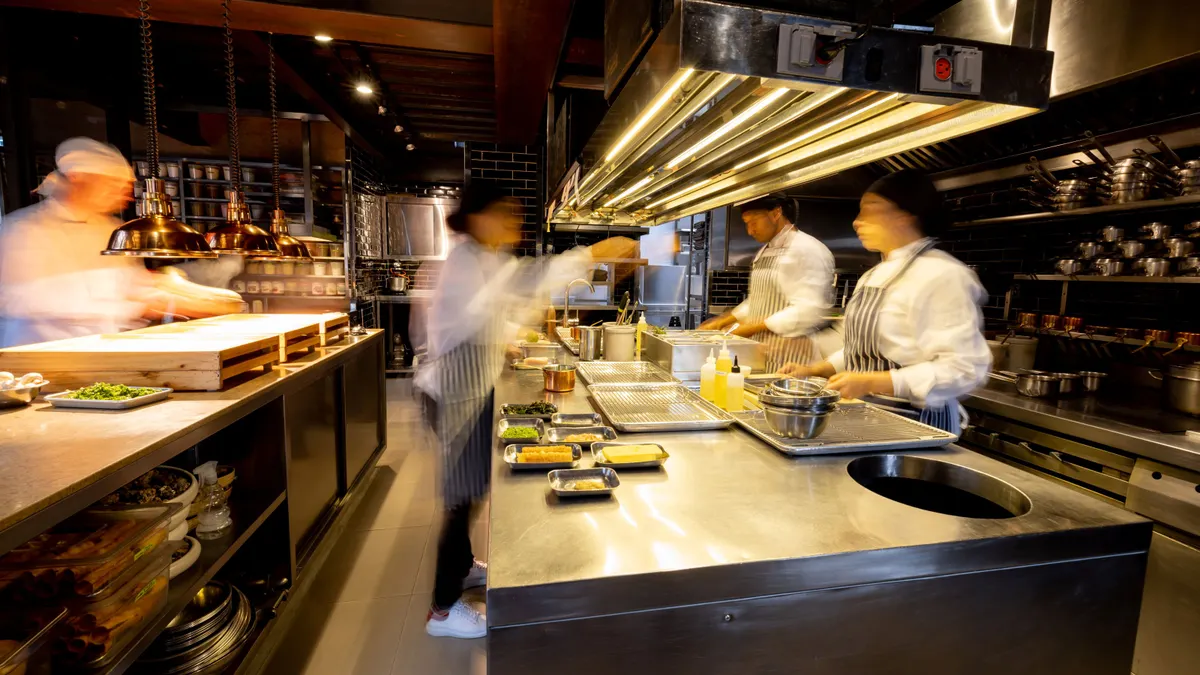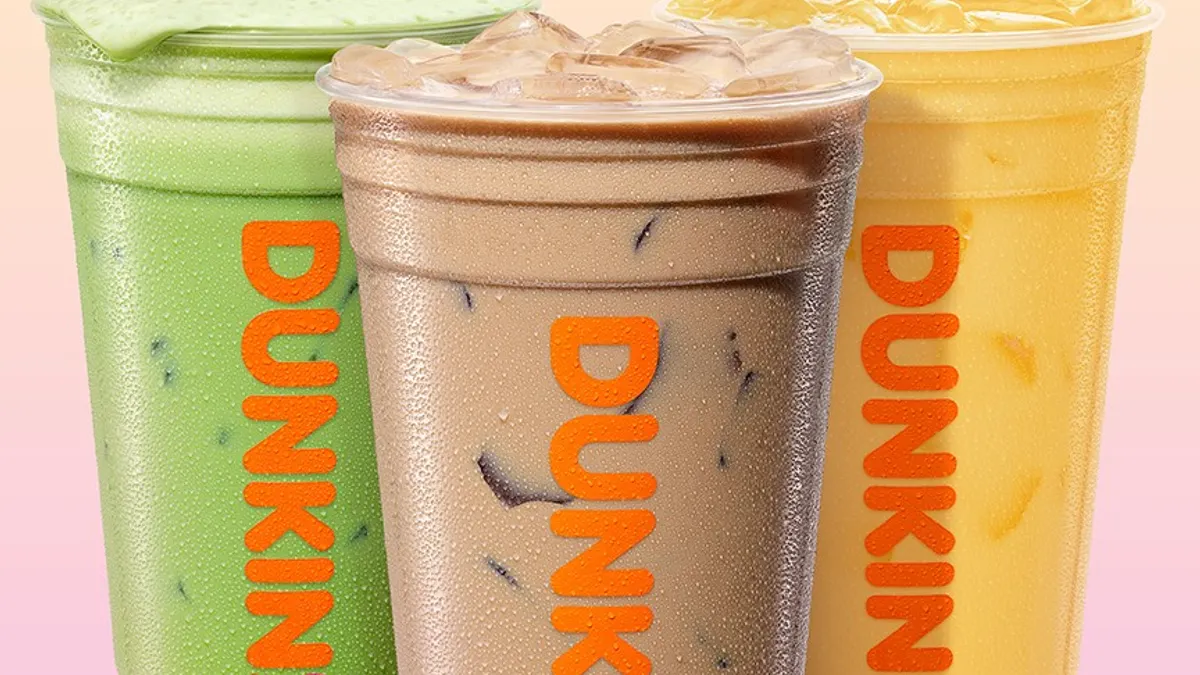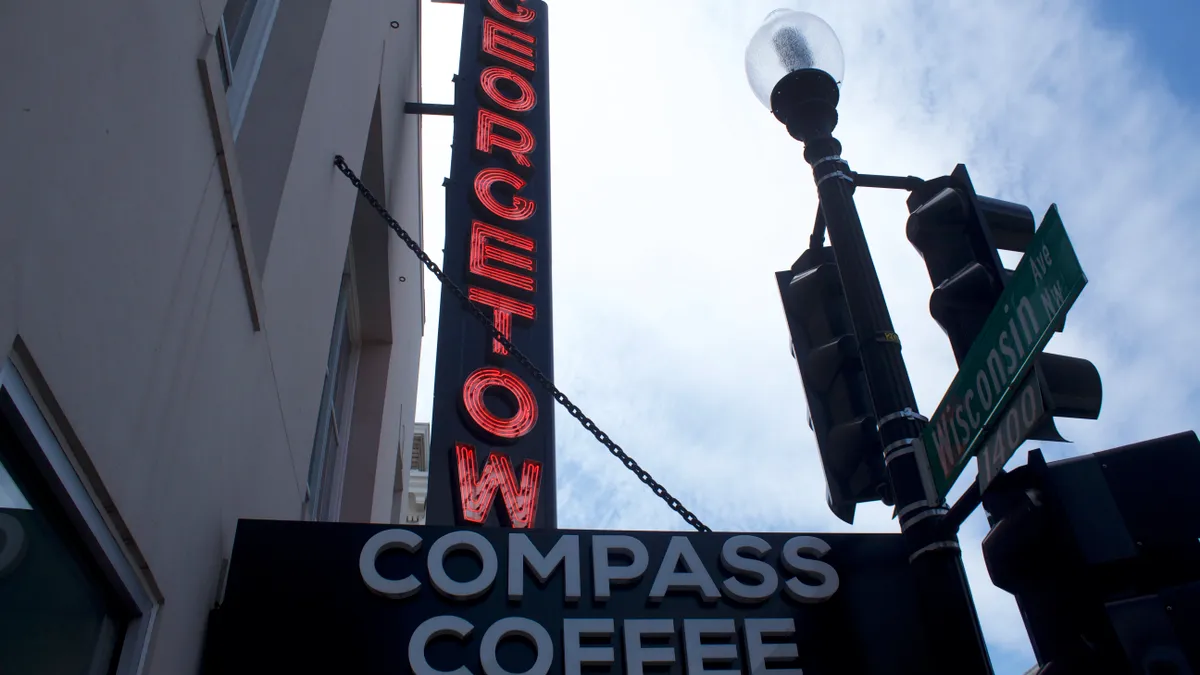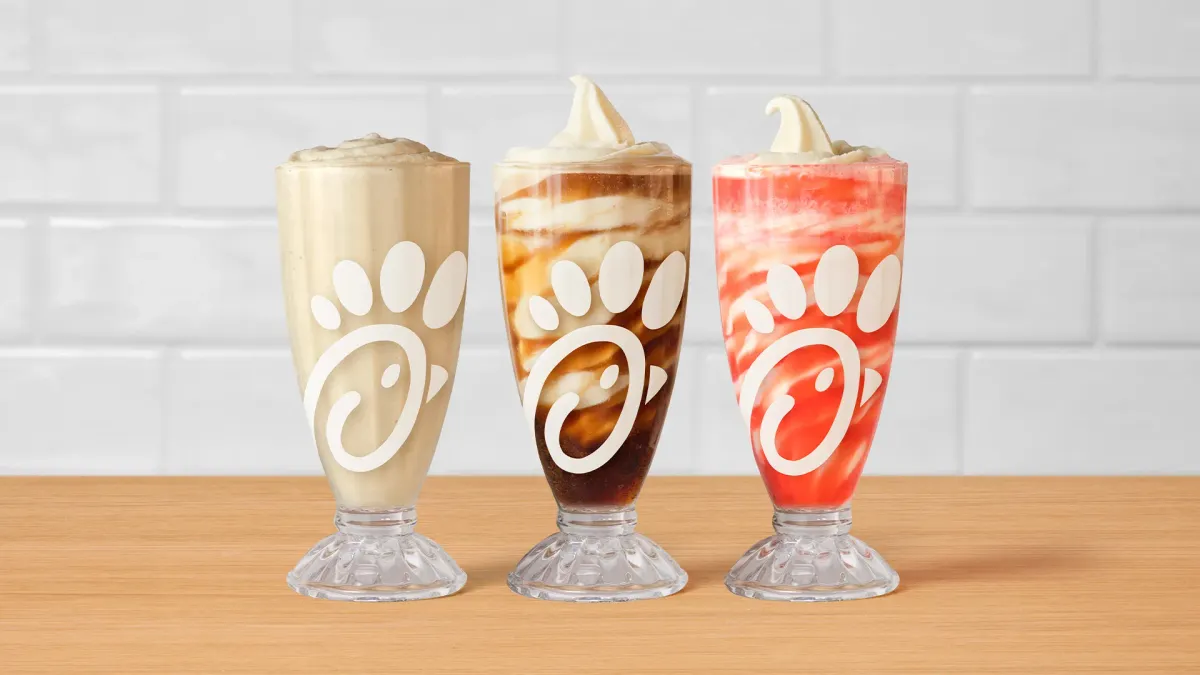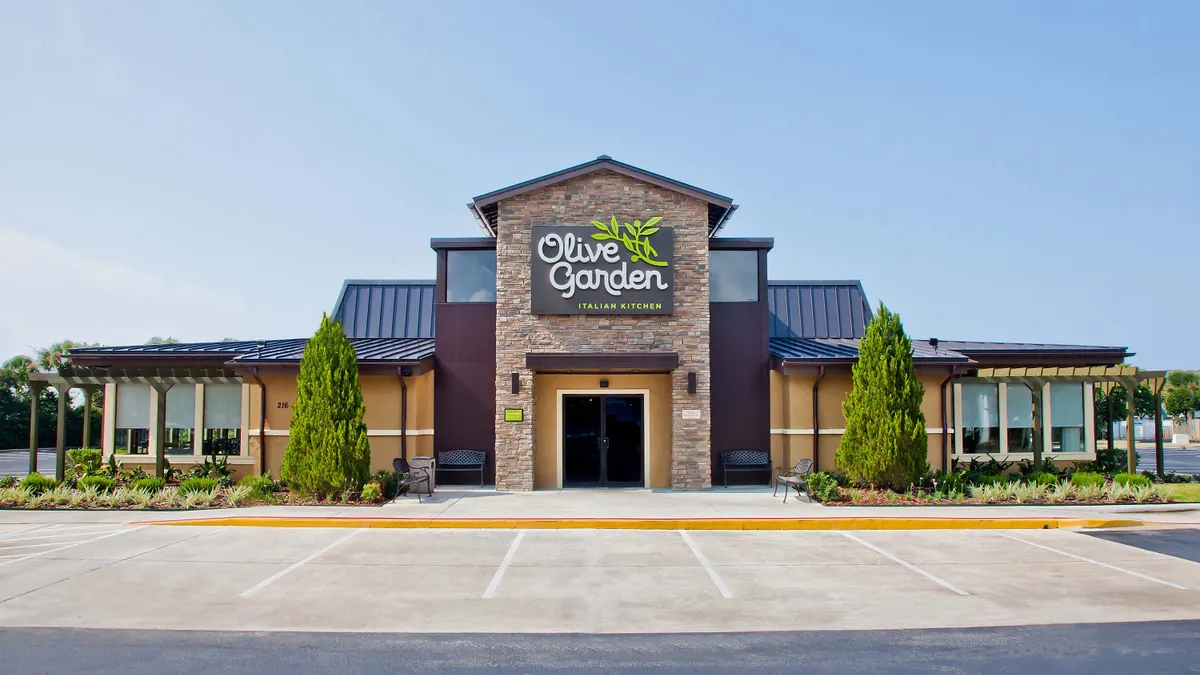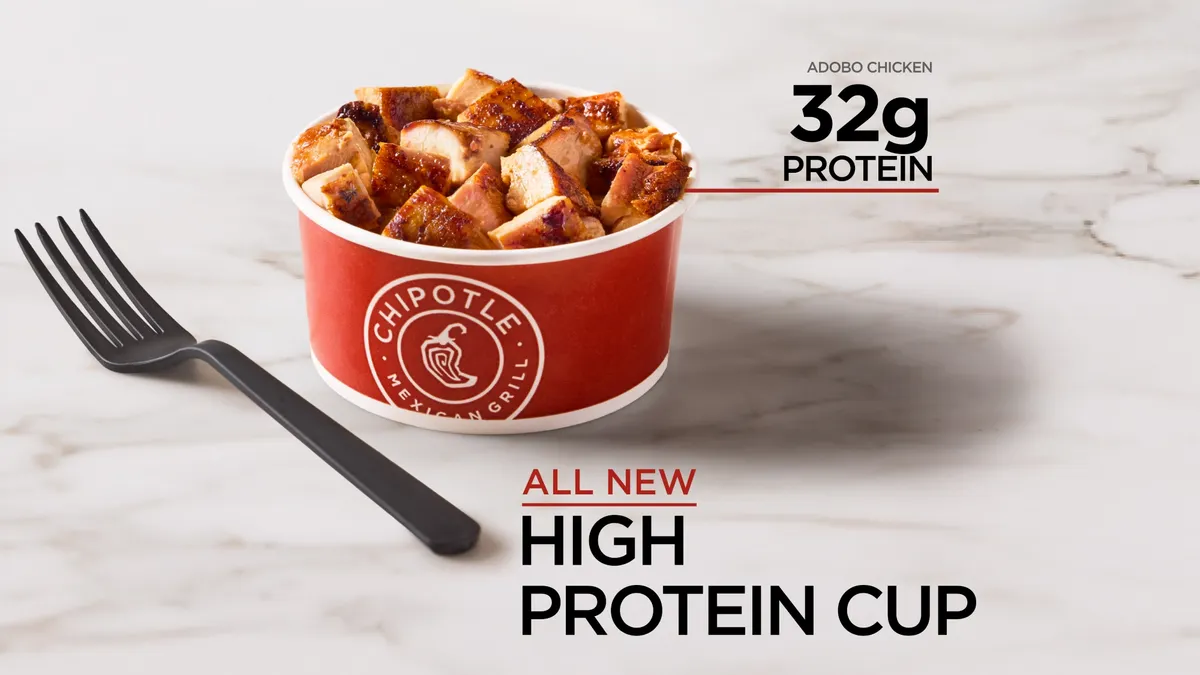If 2019 was the year of the chicken sandwich wars, 2020 is shaping up to be the year of the breakfast battle.
Wendy’s recent breakfast launch — its latest after years of failed attempts — has brought the competition to a boiling point. Major QSRs from McDonald's to Dunkin' and Burger King have issued a flurry of breakfast promotions and new items to protect their turf. McDonald’s added chicken breakfast items earlier this year while Burger King is testing its Impossible Croissan'wich and Dunkin' sells snackable bacon strips.
Full-service chains like IHOP, Denny's and Black Bear Diner, which offer all-day-breakfast menus, also hold a strong competitive position, especially as they develop more off-premise channels for added convenience.
So why all the focus on breakfast? It's the only growing daypart in an industry grappling with declining customer traffic.
Last year, American consumers ate nearly 102 billion breakfasts in addition to 50 billion morning snacks, according to NPD Group data emailed to Restaurant Dive. QSRs are capturing a growing slice of this morning spend, and QSR breakfast and morning snack purchases increased at a compound annual growth rate of 5% during the last five years. Foot traffic was also up 1% in 2019 for these two dayparts, whereas the overall restaurant industry on average was flat.
And demand isn't likely to slow down any time soon.
Over half of adults said they are more likely to pick up a breakfast meal, snack or beverage from a fast food joint, coffee shop or restaurant on their way to work than they were two years ago, according to the National Restaurant Association's 2020 State of the Industry Report. Coffee and snack establishments also see 47% of their customer traffic during the morning hours, according to the report.
Low unemployment levels have contributed to the trend. Commuters today have higher disposable incomes and less time for at-home meal preparation, Hudson Riehle, SVP of the research and knowledge group at the NRA, told Restaurant Dive.
"If restaurants can offer breakfast items at a low price and with a high degree of convenience, consumers will likely view this [as] a cost-effective and efficient way to eat breakfast without taking the time to make it themselves," Matt Godinsky, research analyst at Euromonitor International, told Restaurant Dive in an email.
When mornings can be a scramble, restaurants can step in and provide items that can be difficult or time-consuming to make at home.
"For example, making a breakfast burrito at home could be a complicated process, or it could cost just a few dollars and be ready in a minute or two when purchasing from a restaurant," Godinsky said.
A handful of chains are even starting to offer delivery during the morning hours.
Breakfast is cracking into delivery
Until now, breakfast delivery was a relative rarity compared to lunch and dinner because morning menu items can be much harder to deliver, Godinsky said.
"Of course, freshness is a factor in all food delivery, but people really, really don't want to eat cold eggs, soggy pancakes or brown avocado toast," Godinsky said.
Breakfast also typically consists of either small items like a bagel, bowl of cereal or fresh fruit, or large meals that tend to be reserved for special occasions, weekends or brunch, Godinsky said. It’s more common to have a complete meal for lunch or dinner.
"Consumers are more willing to pay for delivery when they feel they are getting their money's worth," Godinsky said. "I think most people would be disinclined to pay a $3.99 delivery fee plus a $2 to $4 service fee to have a bowl of Cheerios and a glass of OJ delivered. This isn't to say that nobody would be willing to pay for this, or that restaurants couldn’t strike a balance, but it hasn't really happened on a large scale yet."
Starbucks, McDonald's, Wendy’s, Denny's, IHOP and Panera are among the handful of national brands that offer delivery during the breakfast hours, and some chains have scored initial success.
Panera's breakfast delivery, which launched in 2018, is the chain's fastest growing delivery segment. It currently offers breakfast delivery at about 700 cafes, the company told Restaurant Dive. Denny's On Demand made up 12% of Denny's sales during Q4 2019, according to the company's year-end earnings call. IHOP, which offers delivery across its system, is growing its catering platform, which is available at 600 restaurants, executives said during Dine Brand's 2019 year-end earnings call in February.
California-based Black Bear Diner added delivery to its offerings in 2018 after much debate because the restaurant was primarily focused on the customer experience within its four walls, CEO Anita Adams told Restaurant Dive.
"We recognized there are guests and new guests experiencing Black Bear through delivery and frankly takeout, [which] is particularly strong for us," Adams said. "That has been a great growth channel for us."
The restaurant now works with three different partners. While the company wondered if offering off-premise would shift the balance away from dine-in sales, it's been fairly balanced, Adams said.
To maintain food quality, Black Bear invested in more expensive packaging that retains heat and protects food during travel, Adams said. Customers haven’t provided much feedback over food quality issues during delivery, she said.
The company is also considering family meal offerings and catering.
"We see the interest in folks enjoying our offerings outside of our four walls and we want our fair share of that and want to be in their consideration of that," Adams said.
QSRs expand their morning menus
While some chains have added delivery to their offerings, QSRs are also developing compelling food items and premium beverages that are attractive to on-the-go consumers.
"What you've seen is a fair amount of re-engineering of breakfast food to become more portable," Riehle said.
This year, McDonald's debuted a Chicken McGriddle and McChicken Biscuit, which will allow it to better compete with Chick-fil-A. On March 2 — the same day as Wendy’s breakfast launch — it created National Egg McMuffin Day and gave away free Egg McMuffins.
McDonald's is particularly focused on stemming breakfast traffic losses by running better operations, introducing new menu items and offering competitive price points, Kevin Ozan, EVP and CFO said during the company's Q4 2019 earnings call in January.
Dunkin' will remain focused on coffee, namely premium beverages and signature lattes, Dave Hoffman, Dunkin' Brands CEO and president, told investors during a Q4 2019 earnings call in February. In 2019, the chain installed iced coffee brewers nationwide and is investing more in its hot coffee platform, he said. The company will invest about $60 million toward high-volume brewing equipment for all of its U.S. restaurants, he said. This will enable the company to expand its variety of drip coffees and improve operations. The chain is also leveraging trendy food innovations like the Beyond Sausage sandwich.
At Starbucks, customers can now buy breakfast wraps and premium beverages, including a golden ginger drink, iced pineapple matcha, coconut milk mocha macchiato and horchata almond milk frappuccino.
Panera rolled out a coffee subscription service for $8.99 per month in February to complement its breakfast program, which drives 10% to 15% of sales depending on location and season. It is also meant to boost customer traffic.
"I think through the coffee program, we feel we are giving a very compelling reason for consumers to come in and then try the great food at Panera [during] all dayparts, but particularly the breakfast daypart," Niren Chaudhary, CEO of Panera, told Restaurant Dive.
Last year, the chain expanded its menu with breakfast wraps, premium beverages and additional bakery items as part of the chain’s strategy to grow breakfast, which makes up about 10% to 15% of its sales depending on location and season compared to 40% of sales from lunch, the company said.
"I believe that restaurant brands are trying to seize this opportunity and get ahead of the competition by expanding their offerings for a mealtime that has more room for growth, especially among the leading limited-service brands," Godinsky said.
Full-service goes full-day breakfast
Those already established in the breakfast space, like IHOP, Black Bear Diner and Denny's, are leaning heavily into their expertise, offering typical morning fare all day.
Breakfast cuisine itself has had positive same-store sales growth, not just as the morning daypart, Victor Fernandez, VP of insights and knowledge at Black Box Intelligence, told Restaurant Dive. And consumers are willing to purchase breakfast items at all times of the day, Godinsky said.
This has translated to an uptick of breakfast for dinner, especially popular with younger consumers, Riehle said.
"If a restaurant patron wants breakfast items for lunch or dinner now that is definitely an operational move, which if one looks back 10 to 20 years ago, certainly was not … mainstream," Riehle said.
Emphasizing all-day breakfast is particularly profitable for these chains. While 85% of Denny's customers order breakfast, its all-day breakfast has grown to make up 64% of its sales mix in Q4 2019 from 62% in Q3 2018, Denny’s CEO John Miller told investors during its February earnings call.
Black Bear Diner's breakfast, which represents about 35% of its sales, has been a part of its menu from day one and offers many homemade items like biscuits, spicy sausage, corned beef hash and fresh squeezed orange juice, Adams said.
"As we think about breakfast, we think of it as a breakfast all-day offering," Adams said. "It's more about ordering a breakfast item whenever you would like that throughout the day."
The company sells a good portion of its breakfast items during lunch and dinner. For dinner, it offers higher quality proteins, such as steak and brisket, alongside eggs, she said.
"From a culinary ideation standpoint, we're not really focused on a window of time, just a breakfast-oriented item any time of the day," Adams said.
LTOs add a twist to the traditional
While restaurants go toe-to-toe with their traditional buttermilk pancakes or scrambled eggs, LTOs, combined with competitive price offerings, provide a unique lure to draw in diners.
Denny's rolled out its Super Duper Slam with all-you-can-eat buttermilk pancakes starting at $6.99 in January. One of its newest LTOs includes its Hearty 9-Grain Pancake Breakfast, CEO John Miller told investors during the company's February earnings call.
"It's very competitive out there with a lot of fast casual biscuit concepts being launched and tried,” Miller said. “Some will scale, some won't make it, but in each of these offerings, it's not just what you can already get in the marketplace, but a new twist on some traditional items."
On March 2, IHOP introduced cereal pancakes and milkshakes blended with popular cereals like Cinnamon Toast Crunch and Crunch Berries to appeal to consumers' nostalgia over watching Saturday morning cartoons while eating cereal, Brad Haley, IHOP CMO, said in a press release.
In January, IHOP also restarted its all-you-can-eat pancake offering available with any breakfast combo, including its newly introduced 2x2x2 combo that offers two eggs and either two strips of bacon or two sausage links for $4.99.
While breakfast remains a very attractive opportunity for new entrants and a lot of companies are seeing growth, the additional competition could eventually temper long-term sales, Fernandez said. Some saturation could occur in the daypart so incremental sales and traffic could slow down over time, much like how it has started to slow down in off-premise, Fernandez said.
But chains like IHOP aren't concerned about the impact of new competition.
Steve Joyce, Dine Brands CEO, told Restaurant Dive, "Competitors are not going to stand around and let Wendy's take their business and neither are we."



